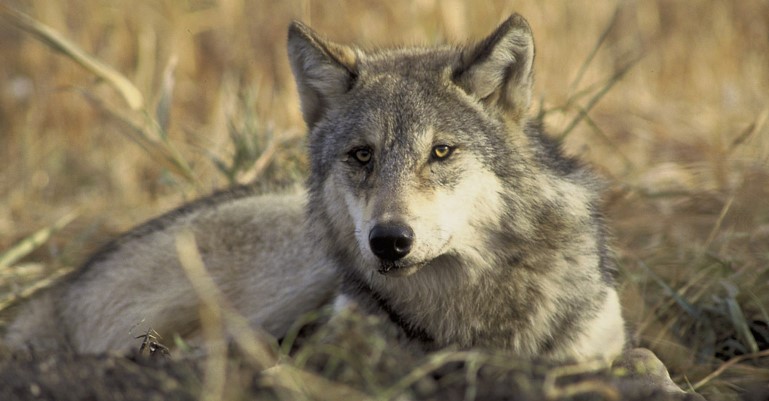Gray wolf removed from Endangered Species List
Conservation and animal protection groups plan to challenge decision in federal court.

Interior Secretary David Bernhardt announced a final rule Thursday to remove the gray wolf from the List of Endangered & Threatened Wildlife under the Endangered Species Act (ESA) in the lower 48 states.
The gray wolf has been federally protected under ESA since 1967. After reviewing the best available scientific data, the U.S. Fish & Wildlife Service (FWS) determined that the wolf population no longer meets the definition of an endangered or threatened species under the ESA.
In 2013, the Obama Administration’s FWS found that gray wolf recovery goals had been achieved, yet the effort to delist the animal from the ESA was met with politically motivated attacks and lawsuits by environmental groups. Management of gray wolves was transferred from the states to the federal level following two 2014 U.S. district court decisions that reinstated gray wolves under ESA protections.
On March 15, 2019, FWS published a proposed rule in the Federal Register to delist the gray wolf and announced the opening of a 60-day public comment period on the proposed action that ended May 14, 2020. In response to requests, FWS extended the comment period until July 15, 2019, to provide all interested parties with additional time to comment on the proposal and to allow for a public hearing. In addition, a final peer-reviewed report on the proposal was made available on June 3, 2019.
On May 28, 2019, Reps. Dan Newhouse (R. Wash.) and Collin Peterson (D., Minn.) led 34 colleagues in a bipartisan letter supporting the proposed rule and urging the Administration to use the best available science to delist the gray wolf.
“The gray wolf is an Endangered Species Act success story,” Newhouse said in a press release following the news. “By empowering states to manage gray wolf populations, the federal government is recognizing the effectiveness of locally led conservation efforts, basing management decisions on sound science instead of politics and providing certainty to families, farmers and rural communities in central Washington and throughout the country.”
The National Association of Conservation Districts (NACD) welcomed the delisting and gave credit to the hard work of locally led conservation.
“Returning management of the species to states and tribes will give conservation districts and landowners -- who are the best suited to make on-the-ground decisions -- more say in the management of the species,” NACD president Tim Palmer said.
Cattle producers praised the announcement. Ashley House, executive vice president of the Washington Cattlemen’s Assn., said: “We have tremendous confidence in the science that informed this important decision and thank Secretary Bernhardt for his leadership on this matter.”
House said the association is hopeful that this decision will guide Washington state policy and policy-makers towards a similar statewide decision on management of the local gray wolf population. In Washington, the gray wolf is listed as endangered in only two-thirds of the state. The Washington State Department of Fish & Wildlife has publicly supported changing the federal designation in order to fully implement the local management plan.
“As ranchers, we remain optimistic that we will be able to protect our livelihoods and ability to produce a safe, affordable, domestic food supply while working in tandem with wildlife managers for balanced management and realized success,” House noted.
“This is great news for Washington state, where our wolf population has reached recoverable levels,” Washington Farm Bureau president Mike LaPlant said. “It’s time to end the federal/state split management of wolves in Washington and allow our state wildlife managers to manage wolves in conjunction with all other species.”
Others did express concern with the delisting. The Humane Society of the United States (HSUS), alongside a coalition of conservation and animal protection groups, said it plans to challenge the decision in federal court.
Kitty Block, HSUS president and CEO, said, “Those who want to trophy hunt wolves, and wildlife officials who are in their pockets, hold out the lie that wolves are a threat to cattle, but in fact, federal data show that such conflicts are extremely rare.
“On the other hand, killing wolves, if anything, can make matters worse. These are highly social and family-oriented animals who pair for life and raise their pups within stable family units. Trophy hunting adult wolves increases the likelihood of orphaned young animals left behind getting into conflicts when hungry,” Block stated.
About the Author(s)
You May Also Like





